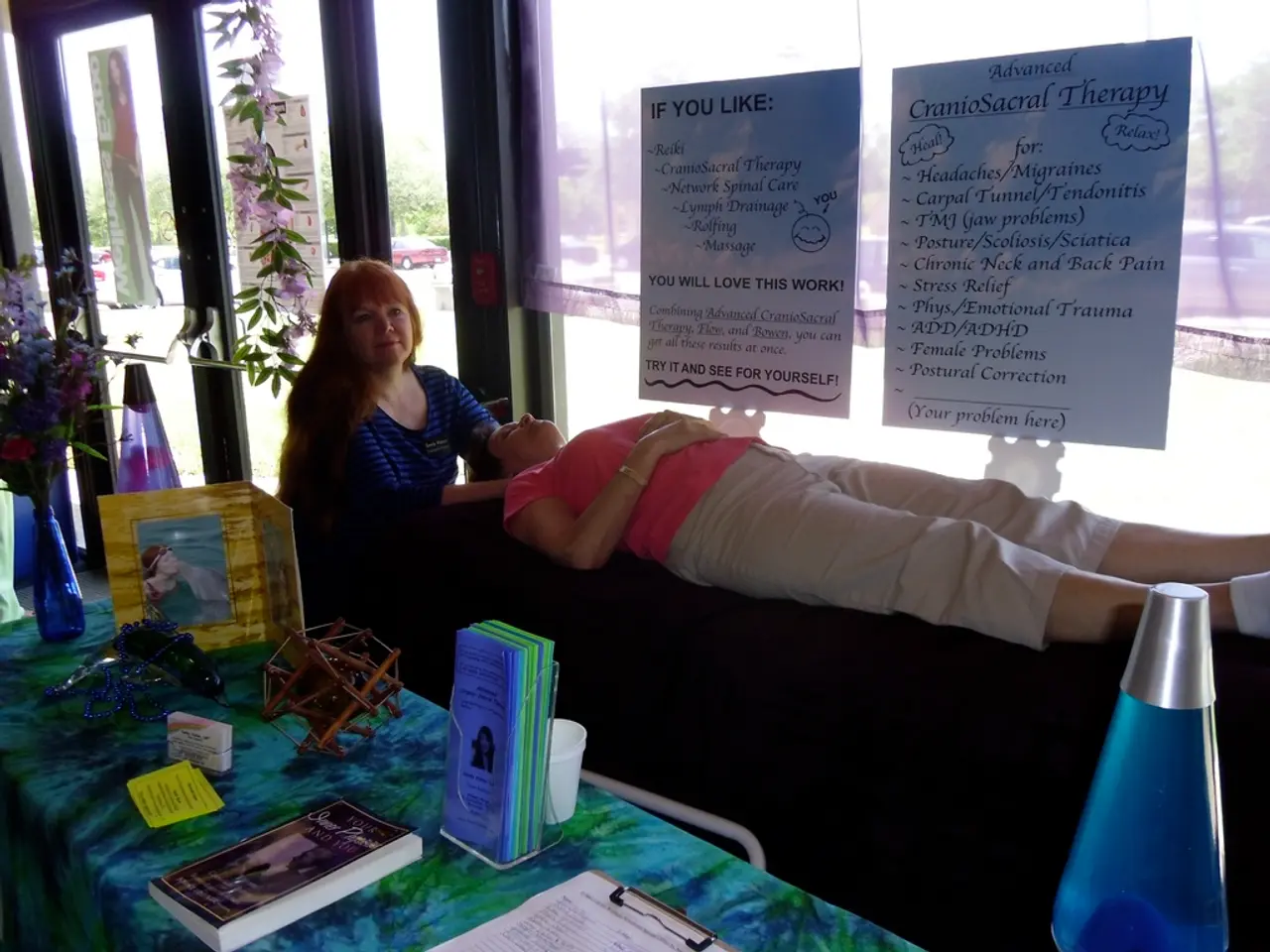"Music therapy program at Virginia hospital triumphs in treating cognitive impairments"
In the heart of Leesburg, Virginia, the Brain Choir at Inova Loudoun Hospital is making a significant difference in the lives of individuals affected by neurocognitive disorders such as stroke and Parkinson's disease. This unique music therapy group, led by board-certified music therapist Mowgli Hassan, is providing a supportive environment that fosters cognitive and communicative improvements, as well as a sense of community and connection.
One of the youngest members of the choir is 21-year-old Ryan Alam, who was diagnosed with a rare disease called MPAN. This condition results in an "iron overload of different brain areas," making it uncertain and challenging to manage. Despite the grim diagnosis, Ryan maintains a positive outlook and is an active participant in the choir. The group is aware of Ryan's condition and supports him through his journey.
Susan Kenney, a 73-year-old stroke survivor, is another member who has found help and community in the Brain Choir. After suffering a stroke on Christmas Eve at the age of 70, Susan spent Christmas and the following three days at the hospital. Struggling to find a support group after her stroke, Susan was eventually referred to the Brain Choir.
The choir meets almost every Wednesday, both in-person and virtually, offering consistent therapeutic engagement that contributes to cognitive and communicative improvements. Music therapy sessions help individuals like Susan overcome speaking difficulties and build community, reducing isolation often experienced by those with neurocognitive disorders.
Music therapist Mowgli Hassan believes that finding community makes individuals "kind of unstoppable." She gives members of the Brain Choir an opportunity to shine, even one word at a time. The choir provides a platform for members to express themselves and feel valued, which is crucial for their emotional well-being.
Unfortunately, the Brain Choir has also experienced loss. Elizabeth Froin, a member of the choir, unexpectedly passed away. The community rallied around each other during this difficult time, demonstrating the strong bonds formed within the group.
The Brain Choir is not just a therapy session; it's a supportive community where members check-in at the beginning of each meeting and sing together, aiding in improving speech function affected by their neurological conditions. Members like Ashley Beard, who has aphasia and apraxia, and John Black, who has Parkinson's disease, find solace and strength in the choir.
Ryan Haag, a 20-year-old who had a rare, hemorrhagic stroke, is also a member of the choir. Like Ryan Alam, he faces challenges due to his diagnosis, but the Brain Choir provides him with a supportive community to navigate his journey.
Despite the hope for a cure in the future, Ryan Alam was told that doctors cannot make his disease better. However, they hold hope for a cure for the generation after him. The Brain Choir continues to support Ryan and all its members, providing a beacon of hope and a supportive community in their challenging journeys.
- The Brain Choir in Leesburg, Virginia, offers various therapeutic approaches, such as music therapy, to help individuals dealing with neurocognitive disorders, like fitness-and-exercise and nutrition programs for health-and-wellness.
- Members of the Brain Choir, including Susan Kenney and Elizabeth Froin, find comfort and connection not only in the group's therapeutic sessions, but also in the sense of community it fosters, similar to that found in entertainment and music activities.
- Mowgli Hassan, the music therapist leading the Brain Choir, advocates that finding a supportive community, like the one provided by the choir, is crucial for mental-health, as the freedom to express oneself and feel valued leads to emotional well-being.
- Aside from music, therapies-and-treatments provided by the Brain Choir contribute to cognitive and communicative improvements for members like Ashley Beard and John Black, enhancing their quality of life and providing them with coping strategies during their challenges.




